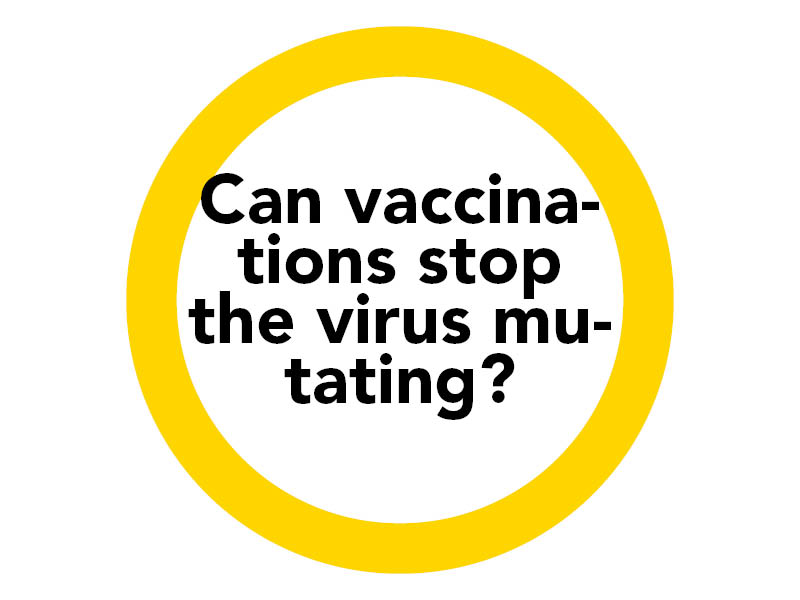There are now several different variants of the SARS-CoV-2 virus, at least three of which are worrisome to scientists. To some extent they have also been found in Austria: a Brazilian variant, a South African one and a British one. Can vaccination against the “original” virus prevent further “offshoots” appearing?
“That will largely depend on whether we can manage to keep infection numbers down to the lowest possible level,” says Stefan Schild, a molecular biologist at the University of Graz. He explains: “When the SARS-CoV-2 virus enters the cells in our bodies and replicates there, errors can occur. This results in mutated variants of the virus which are no longer 100 per cent identical to the original. Once we have been vaccinated, we produce antibodies. One of the most important jobs for these antibodies is to prevent the virus from docking on to our cells, which consequently blocks infection.
The mutations may affect this docking mechanism, although this is not always the case. Thus, vaccination against the original virus may still provide protection if we encounter a mutated variant of the virus. But: the higher the total number of infections, the greater the risk that the virus continues to mutate, with new variants appearing constantly. And it may possibly reach a point where our antibodies no longer recognise a mutated version.
This is why it is important to vaccinate as many people as quickly as possible. Although steps have now been taken in Austria towards easing the lockdown, from an epidemiological point of view it remains as important as ever to limit our contacts where possible. Keeping total number of cases at low level will restrict the appearance of mutations. In short: efficient vaccination combined with social distancing are the most effective instruments we have at present to fight the pandemic.”
>> Link Corona Clip & Klar Video Stefan Schild
>> Leanr more about the scientist
